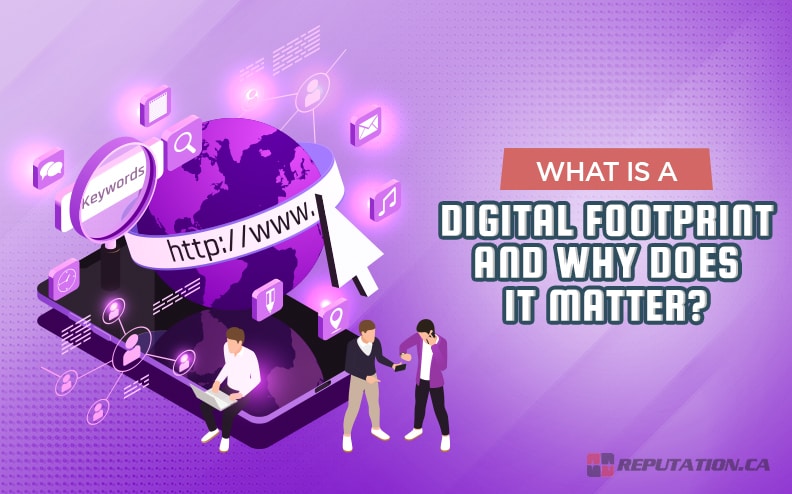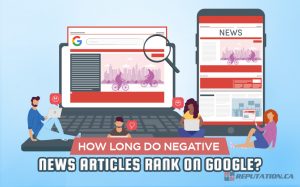We live in a technologically advanced age where virtually anything and everything we do can be accomplished digitally. As we steer further into the skid of this new digital revolution, we come to rely more on it for day-to-day tasks. However, this has led to us leaving something behind that we might want to pay a little more attention to.
With every keyboard tap to submit a file or post, we are leaving behind evidence of our time online. This artifact of our digital exploits, or digital footprint, has a more significant implication than most realize.
What precisely is a digital footprint, and why is it significant? You might find that the answer to these questions might have you rethinking the way you go about your digital and online activities.
What is a Digital Footprint?
The first thing we need to do is outline what a digital footprint is before addressing how it might affect our daily lives. Digital footprints, as you might have guessed, are something left behind in the wake of our digital activity. Think of it as a trail of breadcrumbs from every page we visit and modify that leads back to the device used and the person doing it. However, digital footprints are not entirely as cut and dry as even that. They can be divided into two separate categories of digital footprint.
The most obvious type of digital footprint is the active digital footprint. Active footprints involve information that one or more parties have intentionally shared. They are the sort of trail we willingly leave behind because we need to share a file or thought. While these footprints can be followed back to the user, they are not as nefarious as the secondary digital footprint type.
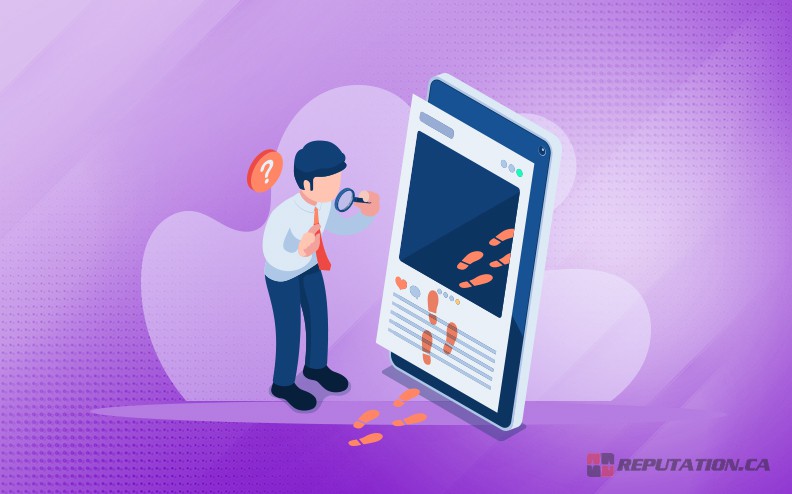
On the other side of the coin is the passive digital footprint, and it is the sort you do not even realize you are leaving behind. Passive digital footprints involve collecting data from just being on a specific part of the internet. While you might not be aware that it is happening, this does not mean that it is not. Passive digital footprints can even be more common than active footprints depending on the types of websites you peruse.
Each of these digital footprints serves as a marker that you were present on these websites or programs. That said, being aware these footprints exist is not the same as being aware of what contributes to their creation.
What Can Cause Digital Footprints?
Digital footprints can come about as the result of several different types of online activity. You might be shocked to learn that even the most unassuming devices can leave a trail behind, leading right back to you and your personal information. One prominent example of a source of digital footprints that spring to mind is online shopping. After all, who among us can honestly claim that they have never made a purchase through Amazon or a similar site? But the extent of what leaves a footprint behind goes beyond even that.

A footprint can be left behind by:
- Making a purchase
- Creating an account
- Signing up for promotions
- Downloading the application
In addition to the role of online shopping in creating your digital footprint, your online banking account is also responsible for your digital footprint. Specifically:
- Using a bank’s mobile application
- Purchasing or selling stocks
- Opening a credit card account
Your social media presence is easily the most common source of your digital footprint and can take things a step further than other causes. Especially if you are using a social media platform to:
- Log in to other websites
- Connect with friends
- Share information
These are not the sole sources of a digital footprint but can be some of the easiest to stumble into. The digital world is rife with software that can keep track of your activity and actions that you might never have realized existed. However, you are probably still wondering why you should even be concerned about an intangible artifact like this.
Why Your Digital Footprint is of Concern?
Your digital footprint might seem like an innocent enough byproduct of your time online. After all, it is worth it to maintain the services you need for communication and financial discourse. However, your digital footprint is something that you will need to carefully monitor and cultivate since it also leaves you susceptible to the more unsavory parts of an online presence.
The thing is, nothing is ever really gone when it comes to the internet. You might delete it, but it is still saved and archived somewhere by a server that could care less about what you want.
One major concern about your digital footprint is a breed of crime centered around abusing this footprint. Cybercrimes take advantage of your digital footprint to illegally access private information they can use to exploit your finances and private data. In some cases, cybercriminals use your digital footprint in an attempt to steal your identity and use it to commit fraudulent activities. This can be one of the most debilitating consequences of an unchecked digital footprint, especially since it is nearly unavoidable when using banking software to manage your finances.
Once you put something out there, you have very little to no control over it after the fact. Say, for example, you make a post on social media. Once that post has been made, it is available for most of the world to see and will likely be archived. These kinds of posts can directly impact your overall reputation, especially when social media mishaps can be a career-ending mistake. As a result, your social media posts are now just as crucial as the philosophies you espouse in the real world, and there are more and more methods people can use to check your posts.
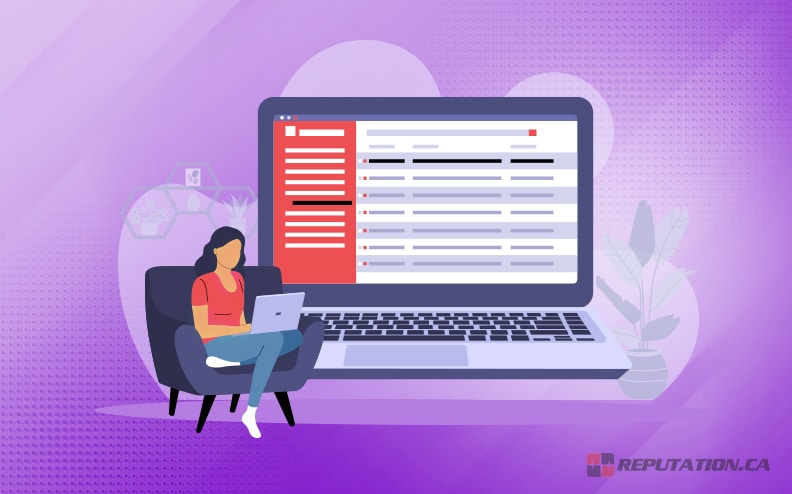
People applying for universities or other academic programs are now subject to social media review by admissions committees. Employers now scan the social media accounts of applicants. If they find something they do not like, it can spoil your chances of getting enrolled or being hired. We live in a time of social accountability in which everything we say and do is now scrutinized to ensure that we do not subscribe to unethical ideologies.
Even information posted with the best intentions can be manipulated to paint you in a poor light. Statements can easily be misinterpreted due to the different personalities and viewpoints of those who hear or read them. Images can be tampered with to present a scenario you might never have been involved in. In some cases, even information, sentiments, and images shared privately can spread within your social circle and be exposed to the wider world depending on how it is received. Your digital footprint presents your media history in a way that can impact the way the world perceives you.
Knowing that your digital footprint can so easily affect your everyday life is probably a scary thought. So, it stands to reason that you are likely wondering what can be done to protect yourself.
How to Secure Your Digital Footprint
Now that we have a little more insight into what a digital footprint is and how it affects us in the long and short-term, you’re probably wondering how to secure it. Ensuring your digital footprint does not compromise your everyday life is an essential step in living a life free of a tarnished reputation or financial losses you cannot recoup.
One of the simplest ways to do a rough check on your digital footprint is as simple as using Google or a similar search engine to look yourself up. You might be shocked to learn that some of your personal information is already public knowledge just through that method.
Unfortunately, once that information is present on a result site, its administrator has full power over whether or not it remains there. You can contact the administrator of a site to try and have the results deleted if they paint you in an unpleasant light. Unfortunately, they are free to ignore it in many cases, which leads to sites like TheDirty and their extortionate business model.
Regardless, you might want to consider setting up a program to alert you when your information is searched. In reality, the only real way to protect your digital footprint is to take pre-emptive measures to protect yourself before you begin browsing the internet.
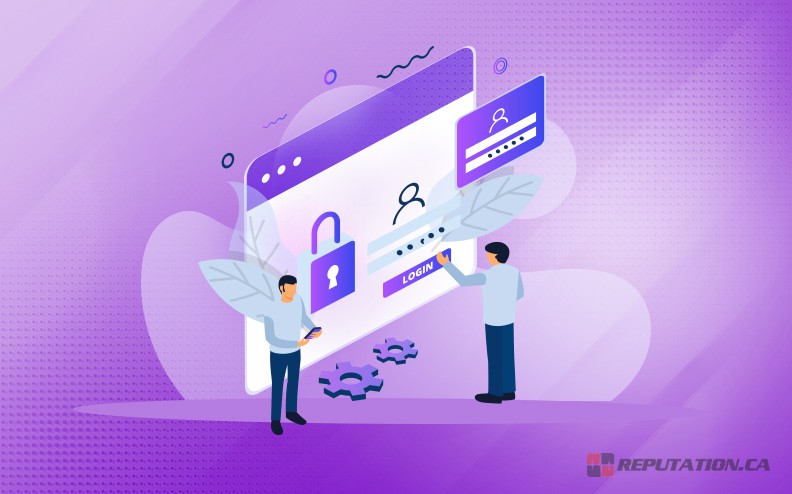
The pre-emptive steps that can be taken to minimize the radius of your digital footprint can occasionally be cited as “common sense,” but there is a wide margin for error. Especially since even the most innocuous activity on the internet can leave behind a notable impression. One of the best early steps is to verify your privacy settings across your various social media accounts. Your social media presence is one of the most significant sources of a digital footprint and can cause you to reveal more information about yourself than you might have intended.
Your privacy settings can be used to limit who can see what you post and who can access your profile in the first place. Doing so makes it simpler to manage your digital footprint more effectively by ensuring that only people you trust can see what you post and what personal information is readily available to strangers. However, there is yet more you can do to secure your data.
When using the internet, you should take care not to disclose private information over an unsecured Wi-Fi network. Virtually anyone can access a public network and use it as a backdoor for a remote hack into your personal files. This could be information that affects you financially, socially, or professionally. Ensure that no important data is being accessed on an unsecured network, and cybercriminals will have a much harder time accessing your data.
Another powerful tool in the fight against a large digital footprint is using a virtual protected network or VPN. VPNs allow you to regulate the IP address generated by your devices when browsing the internet. This can be useful in misdirecting hostile attempts to gather the data that cybercriminals are known to covet. Several VPNs are available for this very purpose, like Nord VPN or SurfShark. Once you have found a reputable VPN service, you will find that your internet browsing habits are a little safer.
Let Us Manage Your Digital Footprint
Our digital footprint, much like the ones we leave in the ground as we walk, creates a trail right back to us. It shows the outside world where we have been and gives them a general idea of where we are going. That kind of knowledge can be extremely dangerous in the wrong hands since it allows them access to our personal details that we might do well to keep private.
Managing our footprint to be as minimal as possible is the only real way to defend against this fully. However, depending on how long you have been using the internet for your day-to-day activities, you might find there is too much data for you to manage alone.

Fortunately, there are allies in the fight to manage your reputation and protect information against misinterpretation. We at Reputation offer resources you can use to track your digital footprint more effectively by monitoring your reputation. Information stemming from your digital footprint will affect your overall reputation no matter who you are or what you do.
We work to make sure that your reputation remains intact and, in doing so, might give you the insight and information you need to track your digital footprint and remove any information that puts you at risk. So, contact us today and see what we can do for you.
Do you have any questions about your digital footprint or actions you can take to reduce it? If so, please feel free to reach out and contact us at any time! We would be more than happy to answer any of your questions and assist you with the process however we possibly can!




